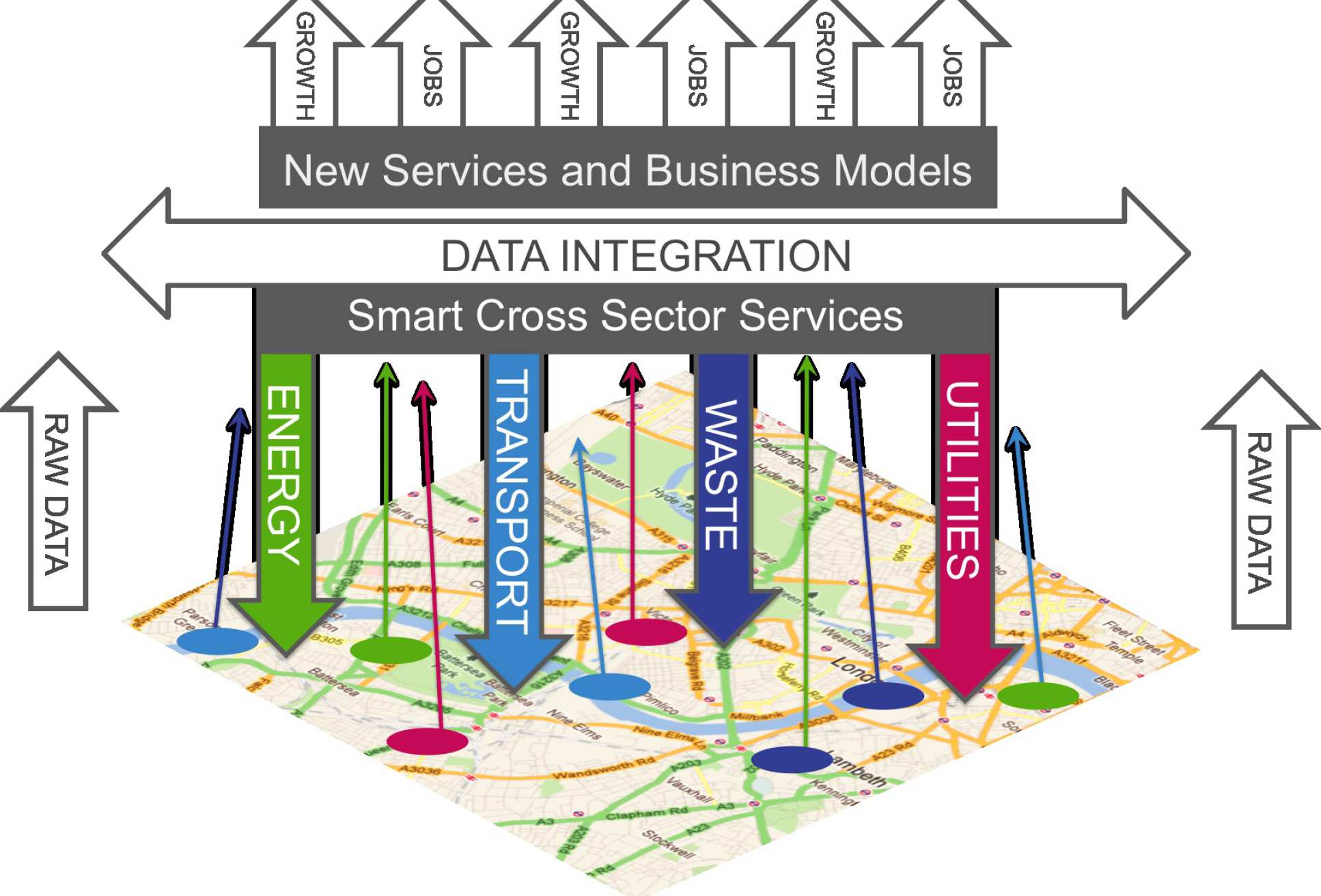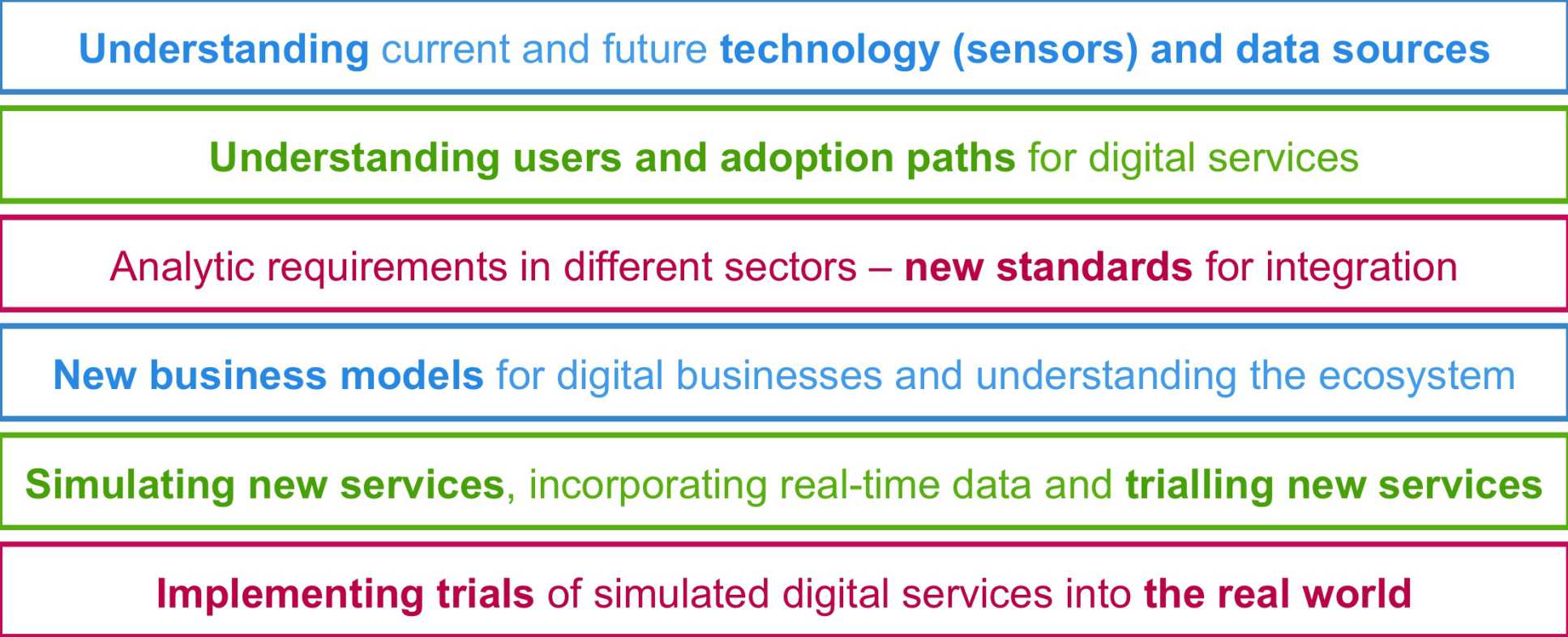Research
Research

Digital City Exchange offers the first cross-sectoral investigation of city resources and services, exploring the opportunities of integrating data-flows across traditional boundaries.
Motivation
Existing City Infrastructure
Most existing cities have evolved without strategic planning. Thus urban services are not efficiently connected and configured; transport, energy, water and waste resource issues are resolved independently. Utilities and services are governed and managed by distinct entities, with different incentives and constraints (competitive, technological, legal).
This piecemeal approach to city asset management and pricing policy gives rise to the costly characteristics of city life associated with peak demand.
Technological Opportunity
Responsive networks characterise modern communications, including digital media, social networking and e-commerce.
Meanwhile, developments in pervasive sensing, large-scale modelling, new analytical and optimisation techniques and web services technologies, the Internet-of-Things and cloud computing all offer a new wave of opportunities to revolutionise an integrated urban infrastructure, both digital and physical.
Business Need
Stimulating economic growth through the development of cross-sector services cannot happen without the development of new business models.
Encouraging businesses to open up their data, and application developers to add value by creating new business opportunities, requires appropriate, flexible pricing structures amongst other interventions to stimulate the creation of the digital city ecosystem.
Objectives
Digital City Exchange seeks to find innovative solutions to optimise the use and planning of cities.
-
Managing Peak Load
-
Harnessing Disparate Data Sets
-
Service Innovation
Addressing topics such as security, robustness, resilience and standards:
- Large-scale modelling
- Multi-agent, cross-sector systems
- Analytical and optimisation techniques
- Web services technologies
Identifying new markets for digital services:
- Integrating data analytics across previously discrete activities
- Deployment of sensor networks
- User engagement
Unlocking business opportunities based on data from pervasively sensed environments:
- Creating and testing new models
- Investigating consumer behaviour at a systemic level
- Creating new services
Approach
SENSE. FUSE. PREDICT. RESPOND.

Research combines engineering, systems analysis, business model innovation and use studies, with analysis of data security and privacy.
Research focuses on advanced virtual prototyping, visualisation of large complex data-sets, and commercialisation pathways.
Innovative services are trialled at test sites where city and community data can be accessed, aggregated and analysed, i.e. at supermarkets and hospitals.
Work Packages
The programme of research is defined by six inter-connected and multi-disciplinary work packages (WP).

Impacts
By developing more integrated infrastructure, transport and resources, innovation from Digital City Exchange will come at the intersection between developments in systems, services and business models by creating platforms on which to build our future city services.
- Enhancing quality of life in cities
- Maximising the opportunities for new businesses
- Enabling valuable new services to emergy
Digital City Exchange promises new, coordinated ways of managing peak demand and ultimately benefiting business, citizens and the environment.


